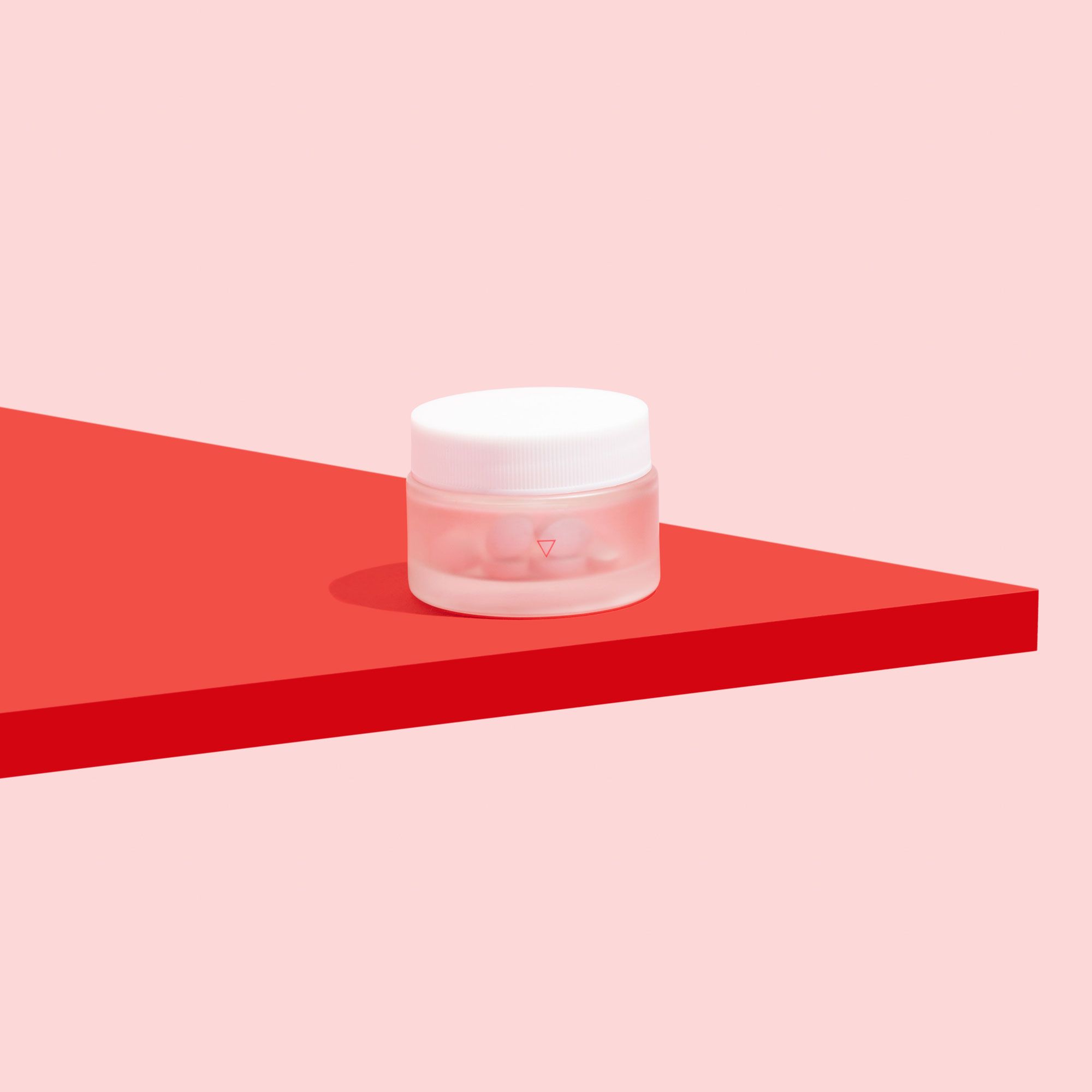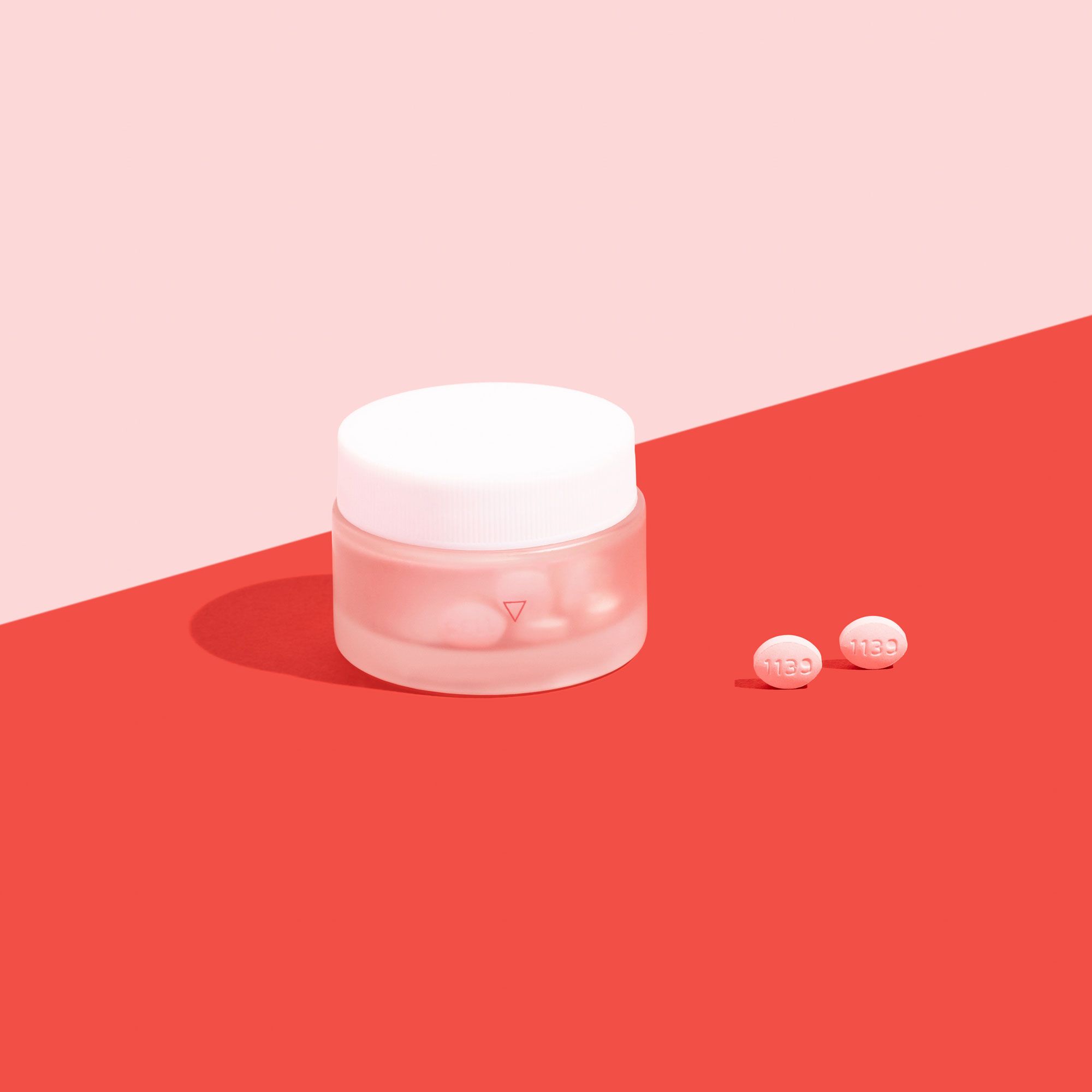
What is Fluconazole Used For?
Published on March 15, 2021
Updated on June 11, 2025
Written by Kathleen Morrison
Medically Reviewed by Andrea Sleeth WHNP-BC, MSCP
Let’s talk about fluconazole—aka your go-to for kicking fungal overgrowth to the curb. This little powerhouse is all about helping you feel comfy in your body again when yeast decides to overstay its welcome.
Oral fluconazole is a prescription antifungal that’s most commonly used to treat things like yeast infections (yep, including vaginal yeast infections and oral thrush), and in some cases, it can be used to treat fungal infections that run deeper, too. It works by putting a stop to the overgrowth of certain fungi, giving your body space to reset and get back to feeling good.
Bottom line? If your body's giving you those telltale signs of a yeast imbalance, fluconazole might just be the simple, reliable solution you need to feel like yourself again.
Fluconazole 101
Let’s get into it—fluconazole, otherwise known as Diflucan, is your no-nonsense friend when you’re dealing with yeast.
It’s part of a group of meds called triazoles, and its job is to deal with yeast and fungal overgrowth that can throw your body out of balance.
One of the most common reasons people reach for fluconazole? Vaginal yeast infections. It’s a solid go-to because it's simple, low-effort, and super effective—usually, one pill and done.
How does it work?
So here’s how fluconazole does what it does: it stops yeast from building their cell walls. Without that structure, the yeast cells kind of collapse on themselves and fade out.
Fluconazole’s also great when it comes to absorption—your body takes it in easily and sends it wherever it needs to go. That’s why a single oral dose is often all it takes to feel way better. (Of course, sometimes more than one dose of fluconazole is needed, depending on the situation, and that’s totally normal.)
Just a heads-up though: fluconazole doesn’t handle every fungal situation. Things like athlete’s foot or ringworm might need something different. That’s why it’s always a good idea to check in with a healthcare provider to make sure you’re using the right treatment for your body and symptoms.
What does Fluconazole treat?
Yeast happens. Whether it’s showing up in your vagina, mouth, or even your esophagus (rude), fluconazole is here to help you feel like yourself again. Here are a few common ways this little antifungal powerhouse can show up for your body.
Vaginal Yeast Infections (Vulvovaginal Candidiasis)
If you’ve ever dealt with a yeast infection, you know the struggle: the itch, the burn, the weird discharge. You’re not alone—this is super common, and there’s zero shame in it.
Fluconazole is used all the time for treating vaginal yeast infections because it’s simple and fast—usually one 150mg pill is enough to get things back on track. No creams. No drama. Just relief that lets you feel like yourself again.
Plus, getting prescription fluconazole can be refreshingly easy. Just a quick online chat with a licensed provider, and your meds can be ready for same-day pharmacy pickup or shipped discreetly to your door. Your comfort, your call.
Wisp treatment options are available only after consultation with a licensed medical professional. You should consult with your healthcare provider before starting a new supplement or treatment regimen. Individual results may vary.
Oral thrush and other mouth infections
Yeast isn’t just a downstairs drama—sometimes it shows up in the mouth too (called oral thrush). You might notice white patches on your tongue or cheeks, maybe some soreness or a burning or tingling sensation.
Fluconazole tablets can help clear up mouth yeast, too. It’s usually taken once a day for a week or two, and it even comes in a liquid version if swallowing pills is a no-go for you.
One quick note: if you're on other meds, just make sure to mention them in your consultation. This is important when it comes to making sure everything plays nicely together.
Esophageal Candidiasis
Okay, this one’s a little more intense—esophageal candidiasis is when yeast travels down your throat and makes things like swallowing really uncomfortable. It's a more serious fungal infection.
It can feel like something’s stuck in your throat or even bring on a fever. It’s more common in folks with weakened immune systems, and it needs some solid attention.
Fluconazole steps in here, too—usually at a higher daily dose for a couple of weeks. In some cases, it might be given through an IV.
Who can use Fluconazole?
Fluconazole is for anyone dealing with a yeast situation—yep, that includes folks of all ages. From tiny humans (with the right dosage, of course) to adults, this antifungal is super versatile.
Here’s what you need to know:
Children
Fluconazole can be used safely in children, including infants, when it’s prescribed by a healthcare provider who knows their stuff.
Dosage is tailored to your kiddo’s size and the specific issue they’re dealing with.
Wisp products and services are for adults 18 and over, and Wisp does not provide treatment to minors under the age of 18.
Pregnant and breastfeeding women
If you're pregnant or breastfeeding, your body is already doing a lot, so when you’re suddenly faced with a yeast infection, it’s totally valid to want relief.
Fluconazole is sometimes used during pregnancy and while nursing, but it’s not always recommended. This is one of those things where the dose and timing really matter. Chatting with a provider will help you figure out the best option for you and your little one.
Wisp does not provide treatment to pregnant patients.
Anyone else
In general, this prescription medication is a solid option for most healthy adults. A simple consultation (online or IRL) will give you the chance to chat through any issues with your provider, but you should be good to go and on your way to relief.
Kicking the fungus with Fluconazole
Fluconazole is a game-changer when it comes to kicking fungal infections to the curb—especially the kind that show up when your vaginal balance is a little off.
Whether you're dealing with a pesky yeast infection or something more intense, this antifungal has your back (and your front).
Taking care of your sexual health doesn’t need to be complicated or uncomfortable—it just needs to be yours. You deserve care that’s clear, compassionate, and totally judgment-free.
Need relief? Wisp has your back. Start your online consultation today and get prescription fluconazole (and other essentials) shipped discreetly to your door or sent to your pharmacy same day for pickup—because feeling good down there shouldn’t be a hassle.
Frequently Asked Questions (FAQ):
What infections does fluconazole treat?
Fluconazole is a go-to for treating yeast and fungal infections—including vaginal yeast infections, oral thrush, and more internal party crashers like esophageal or urinary tract infections. Basically, if fungus is overstaying its welcome, fluconazole helps you show it the door.
What happens to your body when you take fluconazole?
Fluconazole stops yeast’s growth, so your body can bounce back and start feeling like itself again. You might notice some mild stuff like a headache, an unsettled stomach, or looser poops, but that’s your body adjusting and handling business. If anything feels off, don’t stress—check in with your provider.
What are the benefits of taking fluconazole?
It works, it’s easy to take, and it helps you feel like you again fast. Whether it’s calming down an itchy situation or tackling something more stubborn, fluconazole helps clear things up and puts your comfort front and center.
Is one pill of fluconazole enough?
Sometimes—yep! For common vaginal yeast infections, one 150mg dose is often all you need to feel better. But every body is different. Some situations may need more than a one-and-done moment, so it’s always best to follow the plan your provider lays out for you.
This blog post is for informational and educational purposes only and should not be taken as professional advice. Always consult with a qualified professional before making any decisions based on the information provided here.
Common side effects of fluconazole include: headache, diarrhea, nausea or upset stomach, dizziness, stomach pain, changes in the way food tastes.
Serious side effects include: skin conditions, including exfoliative skin disorders that have resulted in death in patients with serious underlying diseases, have been reported. Patients with deep-seated fungal infections who develop rashes during treatment with fluconazole should be monitored closely by a healthcare provider. Tell your doctor right away if you get a skin rash or lesions while taking fluconazole. Cases of reversible adrenal insufficiency have been reported with fluconazole.
Tell your doctor if you experience chronic, or long-lasting fatigue, muscle weakness, loss of appetite, weight loss, or abdominal pain.

Diflucan, Generic Fluconazole (Yeast Antifungals)
Starting at $45.00
Prescription antifungals used to treat vaginal yeast infections

Fluconazole (Diflucan) 150mg
Starting at $15.00
The most common prescription antifungal used to treat vaginal yeast infections.


